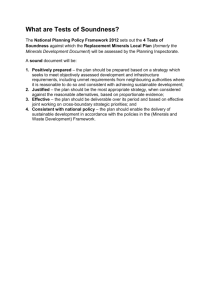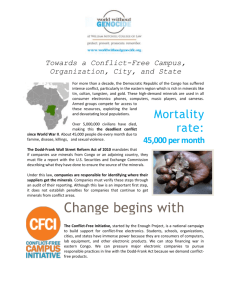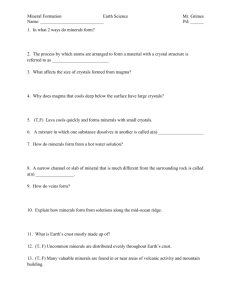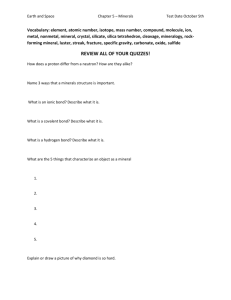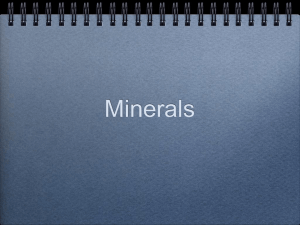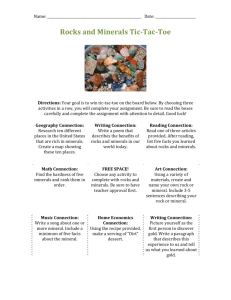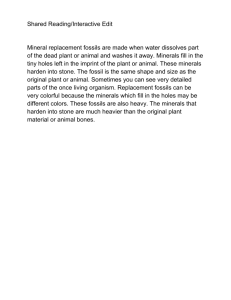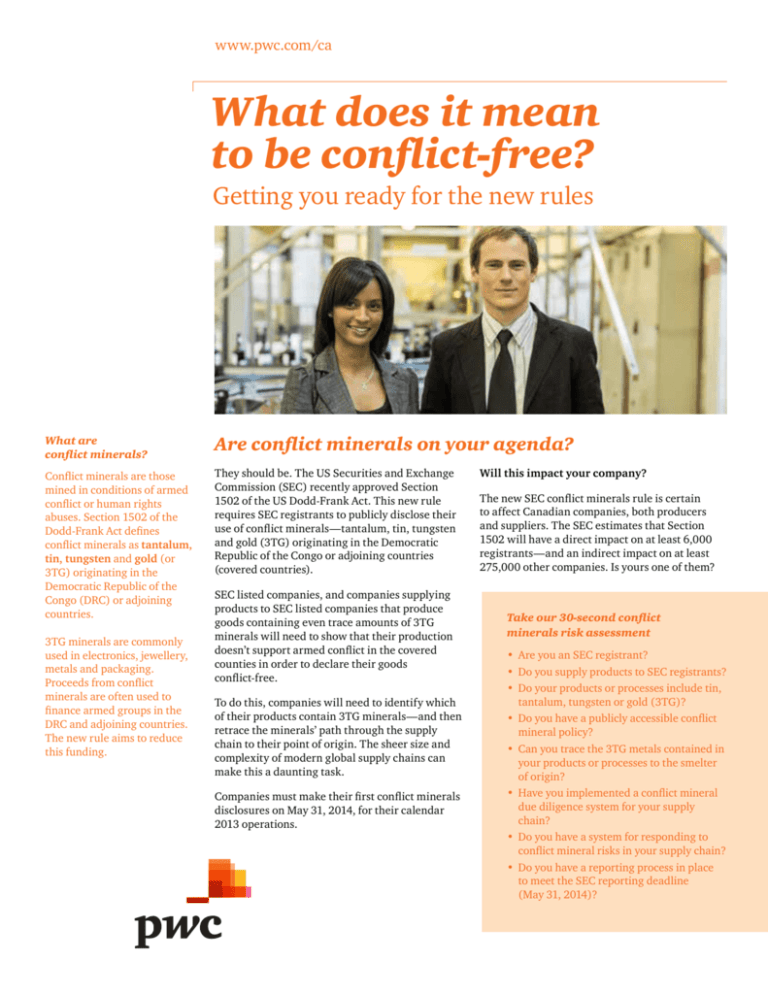
www.pwc.com/ca
What does it mean
to be conflict-free?
Getting you ready for the new rules
What are
conflict minerals?
Are conflict minerals on your agenda?
Conflict minerals are those
mined in conditions of armed
conflict or human rights
abuses. Section 1502 of the
Dodd-Frank Act defines
conflict minerals as tantalum,
tin, tungsten and gold (or
3TG) originating in the
Democratic Republic of the
Congo (DRC) or adjoining
countries.
They should be. The US Securities and Exchange
Commission (SEC) recently approved Section
1502 of the US Dodd-Frank Act. This new rule
requires SEC registrants to publicly disclose their
use of conflict minerals—tantalum, tin, tungsten
and gold (3TG) originating in the Democratic
Republic of the Congo or adjoining countries
(covered countries).
3TG minerals are commonly
used in electronics, jewellery,
metals and packaging.
Proceeds from conflict
minerals are often used to
finance armed groups in the
DRC and adjoining countries.
The new rule aims to reduce
this funding.
SEC listed companies, and companies supplying
products to SEC listed companies that produce
goods containing even trace amounts of 3TG
minerals will need to show that their production
doesn’t support armed conflict in the covered
counties in order to declare their goods
conflict-free.
To do this, companies will need to identify which
of their products contain 3TG minerals—and then
retrace the minerals’ path through the supply
chain to their point of origin. The sheer size and
complexity of modern global supply chains can
make this a daunting task.
Companies must make their first conflict minerals
disclosures on May 31, 2014, for their calendar
2013 operations.
Will this impact your company?
The new SEC conflict minerals rule is certain
to affect Canadian companies, both producers
and suppliers. The SEC estimates that Section
1502 will have a direct impact on at least 6,000
registrants—and an indirect impact on at least
275,000 other companies. Is yours one of them?
Take our 30-second conflict
minerals risk assessment
• Are you an SEC registrant?
• Do you supply products to SEC registrants?
• Do your products or processes include tin,
tantalum, tungsten or gold (3TG)?
• Do you have a publicly accessible conflict
mineral policy?
• Can you trace the 3TG metals contained in
your products or processes to the smelter
of origin?
• Have you implemented a conflict mineral
due diligence system for your supply
chain?
• Do you have a system for responding to
conflict mineral risks in your supply chain?
• Do you have a reporting process in place
to meet the SEC reporting deadline
(May 31, 2014)?
How PwC can help
We can help you develop a conflict minerals
strategy or program that’s right for your
business. For years, we’ve helped clients
in the mining, manufacturing and retail
industries manage their conflict minerals
programs. We bring you a comprehensive
‘mine-to-shelf’ perspective—as well as the
knowledge and expertise of our conflict
minerals team. Our team brings together
more than 100 practitioners in 60 countries,
including metals and mining specialists,
auditors and management consultants,
engineers and scientists, and supply chain,
community relations and risk specialists.
OriginCompliance:
Simplified, standardized
conflict minerals
management
OriginCompliance is a web-based tool
designed to make conflict mineral due
diligence, data collection and reporting
easier and more efficient. OriginCompliance
also enables your organization to better
manage its conflict minerals risks and
achieve greater transparency around its
products.
upplier solicitation and data
S
collection – OriginCompliance,
which can operate on a standalone
basis or integrate into your existing
supplier portal, enables your suppliers
to provide product declarations or
certification for conflict mineral
requirements easily over the web.
Your program administrators can
use the tool to manage workflow,
contact suppliers and track suppliers’
compliance history. You can also use
supplier data to generate risk reports
and identify which suppliers require
additional due diligence—and which
don’t.
• We’ll work with you to analyze how
the conflict minerals requirements
of the SEC and your customers affect
your business.
• We’ll help you identify and weigh key
considerations—such as cost, customer
expectations, emerging industry
practices and brand implications—so
that you can make informed decisions
about your conflict minerals objectives
and strategy.
• We’ll help you meet the requirements
of voluntary industry programs such as
the LBMA Responsible Gold Guidance,
the Conflict-Free Smelter Program, the
Conflict-Free Gold Standard and the
Responsible Jewellery Council Chain of
Custody Standard.
Conflict minerals reporting
– OriginCompliance routinely
analyzes your bills of material for
product classification and supplier
data to provide you with regularly
updated conflict minerals reports
for each product you make. These
reports identify which products
contain conflict minerals and list
any classification or solicitation
tasks required to complete your
annual conflict minerals report.
OriginCompliance provides greater
transparency by enabling you to
quantify the value of 3TG materials
used in your products, their origin,
and whether they are conflict-free or
recycled.
• We’ll help you put in place the processes,
tools and controls you need to execute
your conflict minerals strategy and
achieve your objectives—including
OriginCompliance™*, our proprietary
conflict minerals supply chain and
tracking tool.
Contact us
To learn more about how the
new conflict minerals rules could
affect your business—or how
OriginCompliance can help you
manage the new requirements—
contact a member of our team:
John Gravelle
Partner and Global Mining Leader
416 869 8727
john.gravelle@ca.pwc.com
Bruce McIntyre
Partner, Consulting
604 806 7595
bruce.mcintyre@ca.pwc.com
Craig Moffat
Partner, Audit and Assurance
416 814 5871
c.r.moffat@ca.pwc.com
Nelson Switzer
Director, Consulting
416 815 5112
nelson.a.switzer@ca.pwc.com
Andrew Vanderwal
Partner, Tax
416 869 2316
andrew.h.vanderwal@ca.pwc.com
www.pwc.com/ca
*O riginCompliance is a registered trademark of
PricewaterhouseCoopers LLP, an Ontario limited
liability partnership.
© 2013 PricewaterhouseCoopers LLP, an Ontario limited liability partnership. All rights reserved. PwC refers to the Canadian member firm, and may sometimes refer to the PwC network. Each member firm is a separate legal entity.
Please see www.pwc.com/structure for further details. 2489-11 0713 ..

